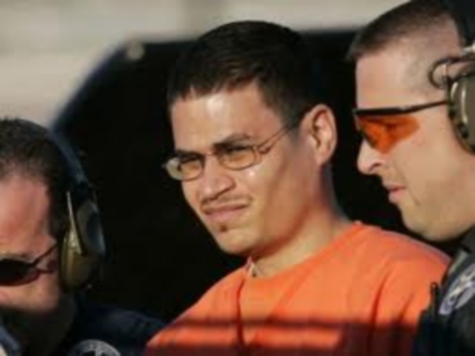
Last week, the U.S. Court of Appeals for the Ninth Circuit ruled against convicted terrorist Jose Padilla in his lawsuit against former Bush Deputy Assistant Attorney General John Yoo.
Padilla claimed his constitutional rights were violated when President Bush designated him an “enemy combatant” and ordered his detention by the U.S. military, allegedly at the recommendation of Yoo. Padilla is currently sitting in a federal prison after being convicted of providing material support to terrorists, among other criminal offenses.
The Ninth Circuit did not buy Padilla’s claims of constitutional rights violations:
Under recent Supreme Court law…we are compelled to conclude that, regardless of the legality of Padilla’s detention and the wisdom of Yoo’s judgments, at the time he acted the law was not “sufficiently clear that every reasonable official would have understood that what he [wa]s doing violate[d]” the plaintiff’s rights…We therefore hold that Yoo must be granted qualified immunity, and accordingly reverse the decision of the district court.
In light of Padilla’s status as a designated enemy combatant…we cannot agree with the plaintiffs that he was just another detainee – or, that it would necessarily have been “apparent” to someone in Yoo’s position that Padilla was entitled to the same constitutional protections as an ordinary convicted prisoner or accused criminal…Given the unique circumstances and purposes of Padilla’s detention…an official could have had some reason to believe that Padilla’s harsh detention fell within constitutional bounds.
Judicial Watch filed an amicus curiae brief in the United States Court of Appeals making this very point. At the same time, we also addressed the “weighty” separation of powers concerns.
Here’s a squib from our brief, filed on November 28, 2009:
Judicial Watch’s primary concern is that the District Court failed to consider adequately the weighty separation of powers concerns that arise whenever the Judicial Branch seeks to involve itself in the presidential decision-making process. These separation of powers concerns are all the more significant when the decision-making process involves national security and the exercise of the President’s powers as Commander in Chief. If the decision is allowed to stand, it would represent an unprecedented expansion by the Judicial Branch into the President’s ability to receive war-time advice from his advisors.
The main point is this: if every presidential war-time decision had to be run through the courts, it would create utter chaos and have a chilling effect on the president’s ability to protect U.S. national security.
Do we really want nutty terrorists like the so-called “Dirty Bomber” dictating how the president takes advice and makes decisions?
It has been almost ten years since Padilla was taken into custody by authorities. Here is some background on him.
Padilla is an American citizen who moved to Egypt in 1998 and spent the next several years traveling throughout the Middle East. According to U.S. intelligence officials, he was introduced to senior Osama bin Laden Lieutenant Abu Zubaydah in 2001. He received training from Al Qaida operatives and returned to the United States allegedly to conduct reconnaissance, then build and detonate a “radiological dispersal device” (also known as a “dirty bomb”) within the United States, possibly in Washington, D.C. On May 8, 2002, authorities arrested Padilla at Chicago’s O’Hare International Airport. On June 9, 2002, President Bush designated Padilla an “enemy combatant” and transferred him to a military prison.
Specifically, President Bush determined that Padilla “posed a continuing, present and grave danger to the national security of the United States,” and “detention of Mr. Padilla is necessary to prevent him from aiding Al Qaeda in its efforts to attack the United States or its armed forces, other governmental personnel, or citizens.”
As the liberal jurists in the U.S. Circuit Court of Appeals for the Ninth Circuit pointed out, Padilla is not “just another detainee.” He is a terrorist.
Yoo, rather than being defended by the Justice Department, was hung out to dry by Holder’s politicized agency and defended himself using private counsel against this meritless lawsuit. The lawsuit was pursued, shamefully, through Yale’s law school. I wonder how Yale alumni feel about their alma mater’s representation of Padilla? As Yoo recently wrote in the Wall Street Journal:
Advocacy groups are using Padilla as a platform to attack the nation’s counterterrorism policies, which they believe should be limited to the tools used against common criminals. They advance their agenda by legally harassing officials, agents and soldiers, and so raise the costs of public service to anyone who does not hew to their extreme, unreasonable views.
These advocacy groups are in court and in the media virtually every day advocating for terrorists and trying to destroy those, like Mr. Yoo, who faithfully tried to serve their country. Judicial Watch is one of the few who oppose the views of these radical groups in court or in Gitmo (see our report from last week).

COMMENTS
Please let us know if you're having issues with commenting.